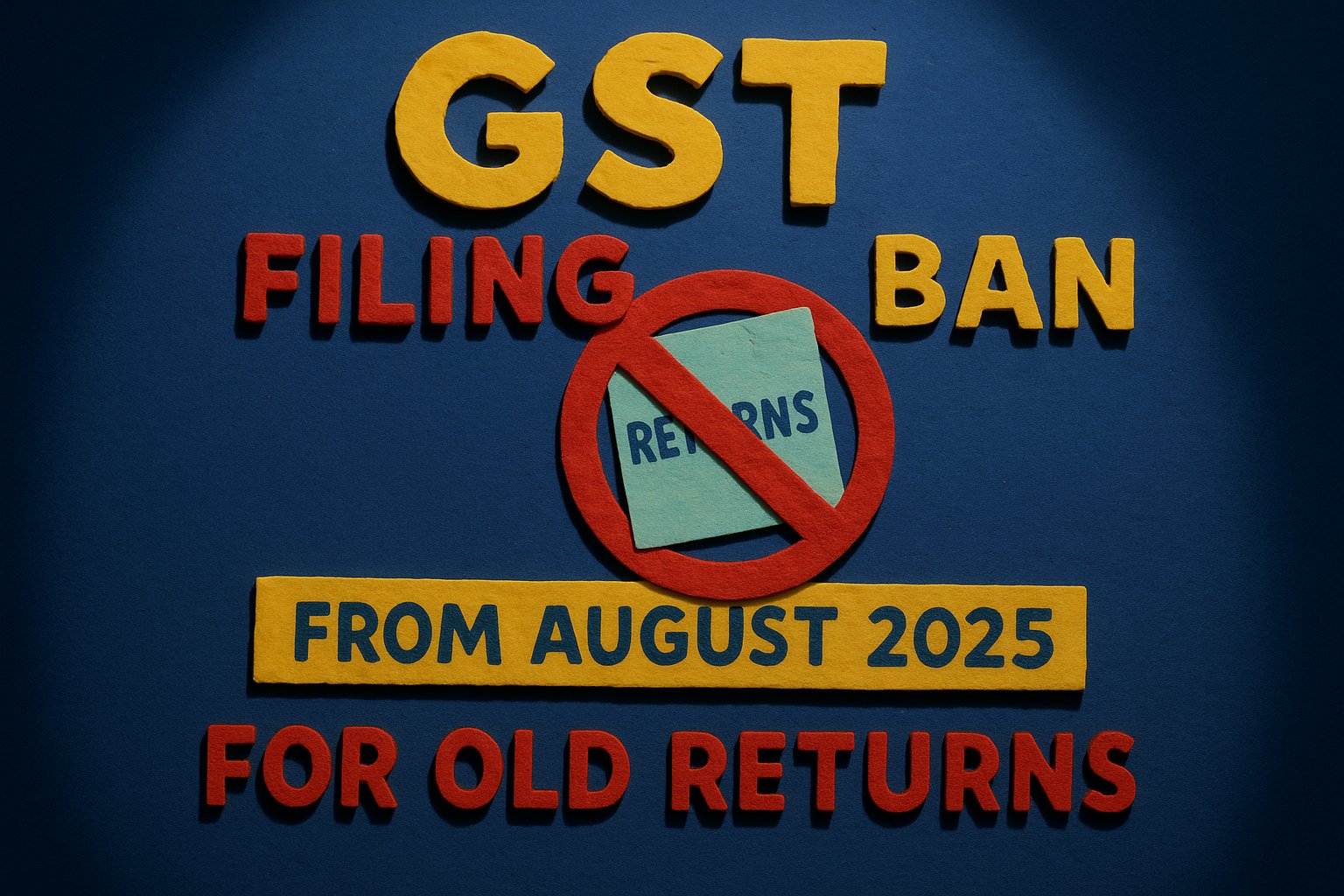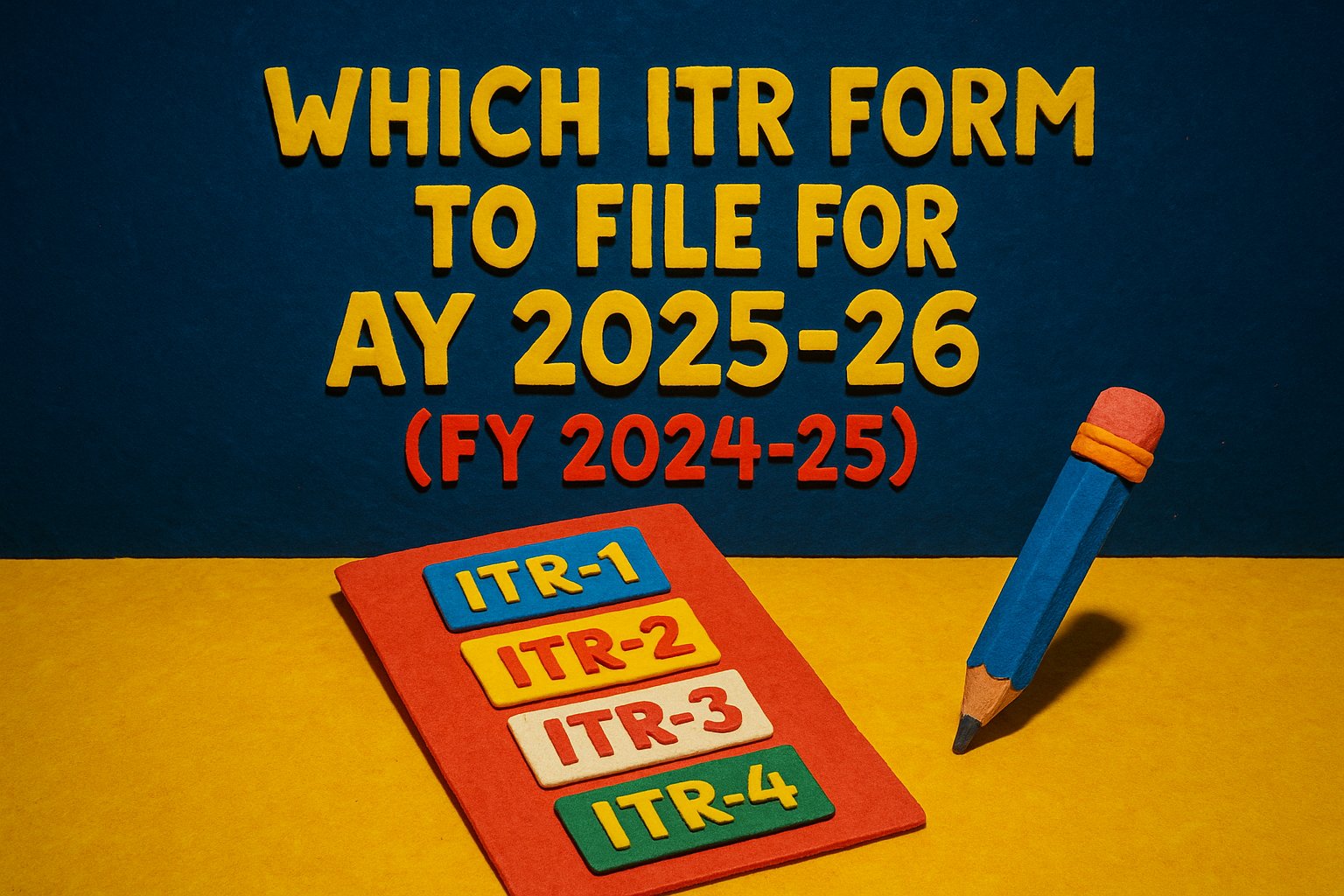Income Tax Return (ITR) is a form that taxpayers in India submit to the Income Tax Department to declare their income, expenses, tax deductions, and taxes paid during a financial year. Filing an ITR is not just for those who owe taxes — even those who qualify for refunds must file it to claim their money.
Let’s dive deeper into the basics of ITR, who must file it, why it’s beneficial, and when it’s mandatory.
What is ITR?
ITR (Income Tax Return) is an official statement where an individual, firm, or company reports:
- Total income earned during the financial year
- Applicable deductions and exemptions
- Taxes paid and taxes due (if any)
The Income Tax Department offers different forms (ITR-1, ITR-2, ITR-3, etc.) based on the type of taxpayer and source of income, such as salary, business income, capital gains, or foreign income.
Who Should File ITR?
ITR should be filed by:
- Individuals: Salaried employees, self-employed persons, freelancers
- Companies and Firms: Regardless of profit or loss
- HUFs (Hindu Undivided Families)
- Trusts and Associations
You must file an ITR if:
- Your total gross income before deductions (like 80C, 80D, etc.) exceeds (under Old Regime):
- ₹2.5 lakh (for individuals below 60 years)
- ₹3 lakh (for individuals aged 60–80 years)
- ₹5 lakh (for individuals above 80 years)
- Your total gross income exceeds (under New Regime): ₹4 lakh
- You want to claim a refund of excess tax deducted (TDS).
- You have income from property, capital gains, or foreign sources.
- You are carrying forward a loss to offset against future income.
- You are a company or firm (irrespective of income or loss).
Benefits of Filing ITR
Even if not mandatory for you, filing an ITR has several advantages:
- Easy Loan Approval: Banks ask for ITR copies for home, vehicle, or personal loans.
- Visa Processing: Embassies require proof of financial soundness through ITR filings.
- Claim Tax Refund: If excess TDS has been deducted, ITR filing is needed to claim a refund.
- Income Proof: Useful for applying for loans, credit cards, or higher insurance covers.
- Avoid Penalties: Non-filing can attract penalties under Section 234F (up to ₹5,000 or more).
- Carry Forward Losses: Only filed returns allow you to carry forward losses to future years.
- Government Tenders: ITR is often needed while applying for government tenders and contracts.
When is ITR Filing Mandatory?
You must file your ITR if:
- Your gross total income exceeds the basic exemption limit.
- You are a company or firm, even if you have zero income.
- You have deposited more than ₹1 crore in one or more bank accounts.
- You have spent over ₹2 lakh on foreign travel or over ₹1 lakh on electricity in a year.
- You have income from foreign assets or are a signatory to a foreign bank account.
- You want to claim tax refund or carry forward a loss to future years.
Bank Deposits of more than 50 lakhs: If the annual bank deposit of an individual in one or more savings accounts exceeds Rs 50 lakh, then ITR needs to be filed.
Professional income above Rs 10 lakh: If you have income from profession and it exceeds Rs 10 lakh during a financial year, then you must file an ITR.
Annual Sales Turnover Above ₹60 Lakhs: Individuals having an annual sales turnover of more than ₹60 lakhs must file an ITR.
TDS/TCS exceeding INR 25,000: If the TDS/TCS of a person is more than Rs 25,000 then filing of ITR is mandatory. However, this threshold is Rs 50,000 for senior citizens.
Note: Filing deadlines are usually July 31 for individuals and October 31 for businesses, unless extended by the government.
Who is Exempted from ITR Filing in India?
Section 194P, introduced in Budget 2021, provides conditional relief to citizens above 75 years of age from filing income tax returns. The exemption is subject to the following conditions:
- Age and Residency
- Senior citizens should be more than 75 years of age and should be ‘Resident’ in India in the previous year.
- Source of Income
- Income should be from interest and pension only, and the interest income must be from the same bank where they receive their pension.
- Declaration
- Senior citizens need to file a declaration with the specified bank providing certain details.
- Specified Bank
- The bank must be a specified bank as notified by the Central Government. These banks will deduct the TDS of senior citizens after considering the deductions and rebates, eliminating the need for these individuals to file income tax returns.
You can contact team of Tax Experts to file Your ITR at 9150010300 or visit www.legalsahayak.com
Filing an ITR is not just a legal obligation; it’s a smart financial practice. Whether your income is taxable or not, staying compliant brings peace of mind, better financial opportunities, and a credible financial history. Make it a habit to file your ITR timely every year and enjoy the long-term benefits!
Visit www.cagurujiclasses.com for practical courses











